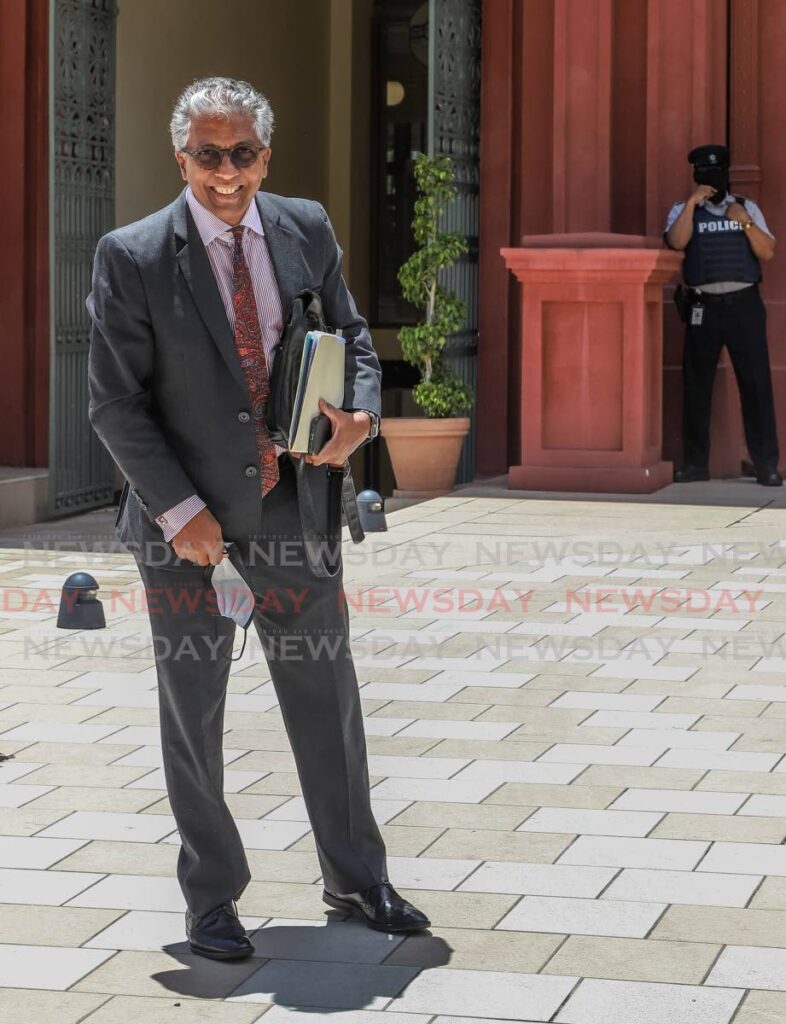Armour: Let Trinidad and Tobago reap the benefits of cannabis

ATTORNEY GENERAL Reginald Armour has said the regulation of a limited cannabis trade will benefit the country economically and help certain patients, while its decriminalisation has rightly spared users from prison, speaking in the Senate on Tuesday.
He piloted the Cannabis Control Bill 2020 to regulate a proposed cannabis industry in Trinidad and Tobago for "medicinal, therapeutic or scientific purposes and for religious purposes," after the 2019 Dangerous Drugs (Amendment) Act had previously decriminalised the growing and personal use of small amounts of the herb.
This was Armour's maiden speech as a government senator and AG, the post formerly held by Faris Al-Rawi, now Minister of Rural Development and Local Government.
Armour paid tribute to the work of Al-Rawi on the bill, and the inputs by Minister of National Security Fitzgerald Hinds and cannabis consultant Marcus Ramkissoon. Armour said the bill supported local content in a proposed cannabis industry.
"We are specifically concerned to regulate the handling so we can reap the benefit of the decriminalisation – societal, legal and economic – of the proper use, cultivation, sale, and medicinal and religious use of cannabis and its products."
He said the board of the Cannabis Authority will be responsible for cannabis licences, monitoring the handling of cannabis and keeping a register of licences.
The authority will allow a doctor to prescribe cannabis in specific doses to a patient and a pharmacist to dispense it, he said.
"Medical marijuana can help patients suffering from various illnesses such as cancer and epilepsy. Due to the new medical advances, cannabis has proven to be something of a medical miracle for epilepsy patients across the world."
He said Jamaica had got in early in the industry, with medical marijuana dispensers nationwide.
Armour said the board would be made up of talented, committed patriots. It would have its own tax-exempt, state-supplied fund which could invest in financial securities so as to be self-financing. The board must sent in an annual report to Parliament.
He said decriminalisation and research into uses of cannabis would develop this society for the benefit of all. Armour supported the bill giving a certain personal immunity to board members, but they must not have a personal interest in the cannabis industry.
He said the authority would oversee licences for cultivators, research and development, laboratories, processors, retail distributors, export, import and transport.
The Financial Intelligence Unit will have a supervisory role over the authority's fund.
"There will be inspectors who will be enabled to inspect the use to which the cannabis is being put, including the power to enter premises. Inspectors will have the power to enter premises specified in a licence other than a dwelling house, without a warrant."
Armour said marijuana decriminalisation has resulted in less-risky behaviour by users, who can stay away from areas of criminality. Further, users who were parents were now spared prison and mixing with hardened criminals, but could stay with their children, he said.
Armour lauded a 77 per cent drop in cannabis convictions, and less money spent prosecuting users, fewer of whom are jailed.

Comments
"Armour: Let Trinidad and Tobago reap the benefits of cannabis"